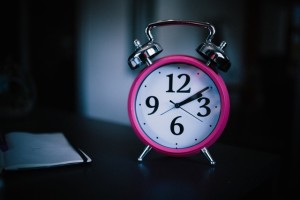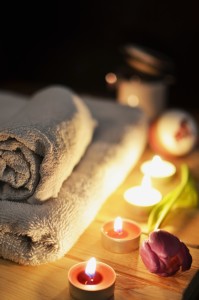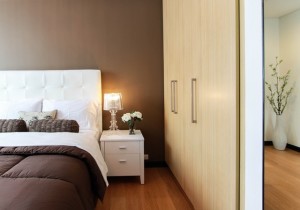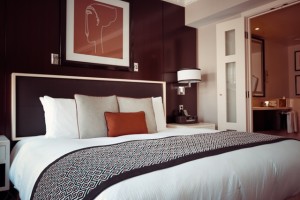
“Sleep is the best meditation.” – Dalai Lama
Sleep is a subject that can trigger different conversations and theories. It is different for different people. Some sleep early for a solid 7-8 hours and wake up early. In others, sleep is seen as flexible. In today’s fast paced world, due to peer pressure and also due to the fast and demanding nature work places, the working population generally views sleep as a dispensable function. Arianna Huffington, Founder of the Huffington Post, now a crusader of sleep and writer of The Sleep Revolution says “The irony is that a lot of people forego sleep in the name of productivity, but in fact our productivity is reduced substantially when we’re sleep deprived.” In reality, sleep is a naturally occurring state, where consciousness, sensory activity and voluntary muscles are inhibited to a state of rest. However, the brain is believed to be more active in sleep than when awake. Scientists world over are still unsure as to why we sleep. But they have established that sleep is the time which the body takes to repair itself. While doing so, a solid amount of good quality sleep can improve the health & well-being of a person.
Falling asleep, easily & naturally occurs in most people. However, if a condition of sleep disorder is present in a person, then falling asleep can be a difficult process. It can be so challenging that people resort to many unnatural alternatives to fall asleep, which can have dangerous outcomes. Thankfully, there are easier and natural ways to trigger sleep. Here are 13 steps that can be followed to get some quality sleep. Some steps are challenging as they maybe result in massive lifestyle changes. Others are a pleasure to follow. But once brought into your ritual, you’ll find that they are a safe and methodical way of falling asleep.
Regular Wake Up Time
In order to enjoy a sound sleep every night, it’s important to set your alarm to ring at a regular time every morning. This helps you wake up at the same time everyday – weekday or weekend. If you suffer from sleep disorders, it is best to avoid late nights or sleep ins during weekends. Irregular wake up times eventually messes with your internal sleep clock which could be a reason for many sleep disorders.


Creating a Transitional Ritual for Sleep
After your work hours it is important to set aside your evenings for some quiet time of relaxation. You can read books, meditate or enjoy some stress free family time. If it’s hard for you to keep stresses from work or personal time away from your mind, it is best to create a list of all the things that need to be dealt with for work or errands. These tasks can be taken up later. Keeping a journal or to-do lists are great strategies to reduce stress and in turn, to aid sleep. Another great strategy is for a schedule of sleep rituals to be created. The schedule could look like this – dinner time, switch off gadgets like mobile and TV, dimming the lights, lighting up candles, a hot shower or bath post which a relaxed time for meditation and then sleep. This schedule can have anything that tells your body to relax and unwind for sleep time. Following a schedule like this everyday can act as a great natural trigger for your body to go to sleep without the use of sleep medicines.
Use Bed Only for Sleep
The bedroom should be used only for sleep. Using your bedroom for reading, work or studying should be avoided completely. Watching TV in bed is a bad practice. But these days one of the worst culprits of insomnia and other sleep problems, is the smart phone. Regular use of Smartphones in the nights can result in many consequences. Using the Smart phone for emails, networking and chat during nights engages your mind, keeping it active instead of unwinding it to get ready for sleep. Your body will require a longer time to fall asleep due to this. The harsh light from smart phones are harmful for the eyes. Apart from these, there are many other consequences.


Your bedroom should be a strict ‘No Screen’ zone
Dim lighting & thick curtains will keep the lights low, which will help unwind the mind. If these tips are followed regularly, your mind will start associating the bedroom with sleep. This will also act as a good trigger to induce sleep. Post 8pm, all screen devices – TV, laptops and smartphones should be switched off. Your bedroom should be a no-screen zone and all screen devices should be banned in this room. This should also be followed by spouse and kids.
Reduce Day time Naps
An afternoon siesta can ruin sleep at night. This is because nap times can fulfil the night’s sleep requirement. However, if taking a nap in the afternoon is a non-negotiable, it is best to keep nap times short & sweet – a quick 45 minutes nap, anytime between 2 & 5pm. This way your naps won’t disrupt your regular sleep and wake times.


Don’t Eat a Heavy Meal
It is best to have dinner at least 3 hours before sleep. This leaves a good 3 hours for the food to complete the digestive process and settle down. It is also best to eat a light dinner. A heavy meal right before sleep affects the quality of sleep. This is made worse if acid reflux is an issue. Sleep can get easily disrupted if you suffer from acid reflux. Waking up with a bad case of heartburn is one of the consequences of this.
Caffeine is a stimulant which takes about 8 hours or more to metabolize completely. For this reason, it is best to avoid caffeine containing beverages like tea, coffee, hot chocolate and caffeinated sodas after lunch.


Avoid Spicy Food
There are many research studies to show that spicy food can lead to disrupted sleep at night. Eating spicy food changes sleep patterns because spicy food stimulates one’s senses. Eating spicy food right before sleep therefore can affect your sleep adversely. Spicy food increases the body temperature due to increased metabolism. It can also lead to Gastroesophageal reflux disease or acid reflux, where the acid from the stomach and food rises from the stomach to the oesophagus, which causes heartburn. This strong burning sensation in the chest and throat could disrupt sleep and keep one awake. Apart from spicy food, meals & beverages high in citric acid, caffeine, fat and alcohol can lead to GERD. If you have trouble sleeping, it is best not to have spicy meals for dinner, very close to sleep time. It is also best to have dinner at least 3 hours before sleep and to have a light meal for dinner. Click here to read research.
Stay Fit
Research shows that obesity places a person at high risk of Obstructive Sleep Apnea. It can also affect the severity of the condition and also future management of it. Exercise is an excellent way to manage and even nearly cure sleep disorders. Increasing physical activity and reducing the portions of food intake can help patients suffering from Obstructive Sleep Apnea, break the weight gain patterns and cycles and also to reduce the progress of disease. Click here to read research.


Quit Smoking or Cut Back Cigarettes
Just like Caffeine, Nicotine is a stimulant, except much more potent than Caffeine. Cigarette smokers can develop insomnia due to this. Suffering from sleep disorders is a great reason for smokers to either cut back or quit smoking.
Avoid Use of Alchohol to Induce Sleep
While it is thought that alcohol has a disinhibiting and sedating effect which can help you fall asleep, it disrupts sleep in the second half of the night which could result in a sleep disorder in the long run. Alcohol should not be used to aid sleep.
Incidentally, cutting back on Caffeine, Cigarettes and Alcohol are the long-term lifestyle changes suggested even for the treatment of Obstructive Sleep Apnea.


Soundproofing the Bedroom
As part of creating a great ambience in the bedroom for sleep, it is worth sound-proofing the bedroom. This will stop traffic and other loud and distracting noises from the outside, from getting into the bedroom. A quiet bedroom can really help create a perfect environment for a good night’s sleep.
Choose a Comfortable Temperature
Choosing the right temperature can be another step taken to create a great environment for sleep. When the temperature is wrong, at the end of a season, sleep is disrupted due to excess heat, humidity or cold, which results in a person waking up often to take the duvet / blanket or sheet off or on. In a situation like this, if a sleep disorder is present, it results in great difficulty to resume sleep. The good news is sleep environment can be controlled to your preference – whether it is sound, light, smell and temperature.

Many of the steps mentioned above are lifestyle changes which are easy to make. It maybe difficult to follow. But once the habit has been created, you will notice that the changes were definitely worth making. Some of the steps mentioned above, especially creating & following the sleep rituals are pleasant experiences which can really help you enjoy your sleep time. Finally, the above steps are great to manage sleep disorders as well as the stresses of a busy world.
